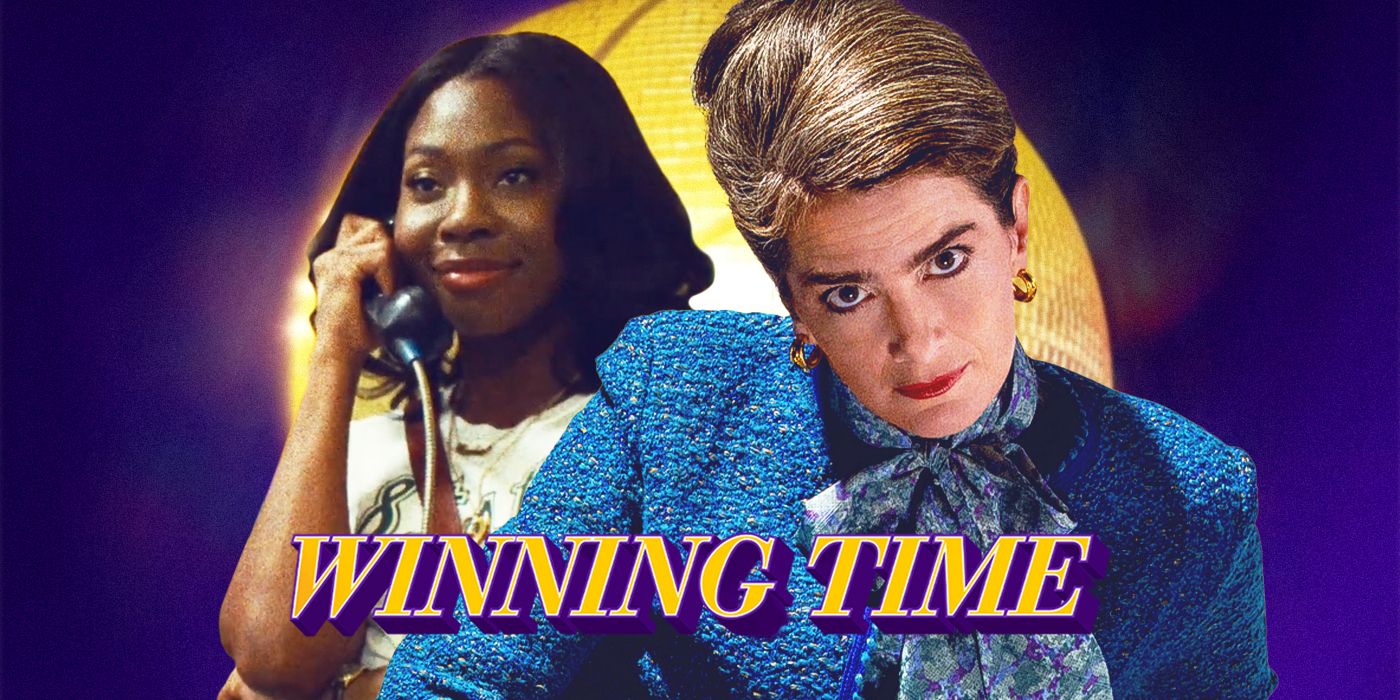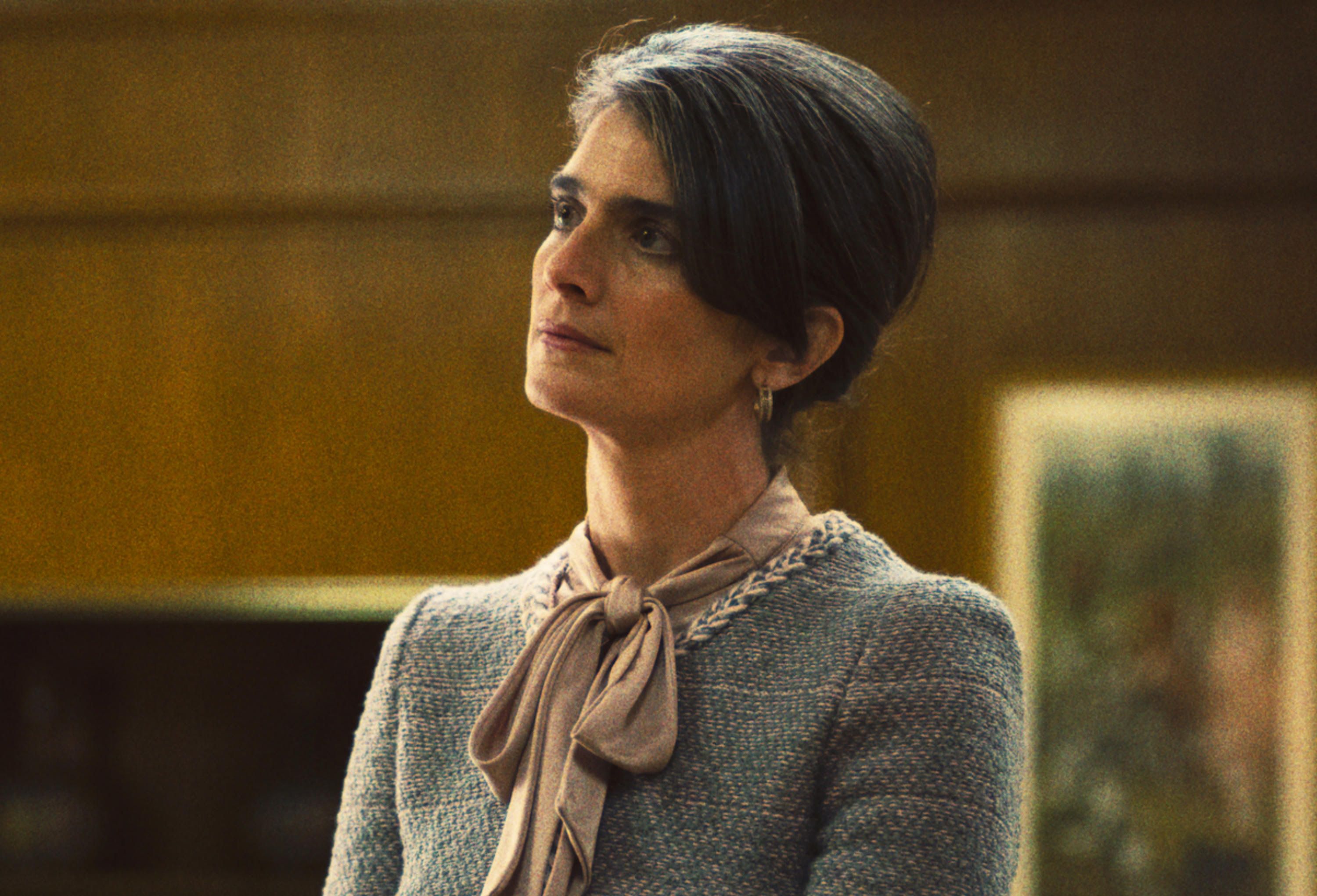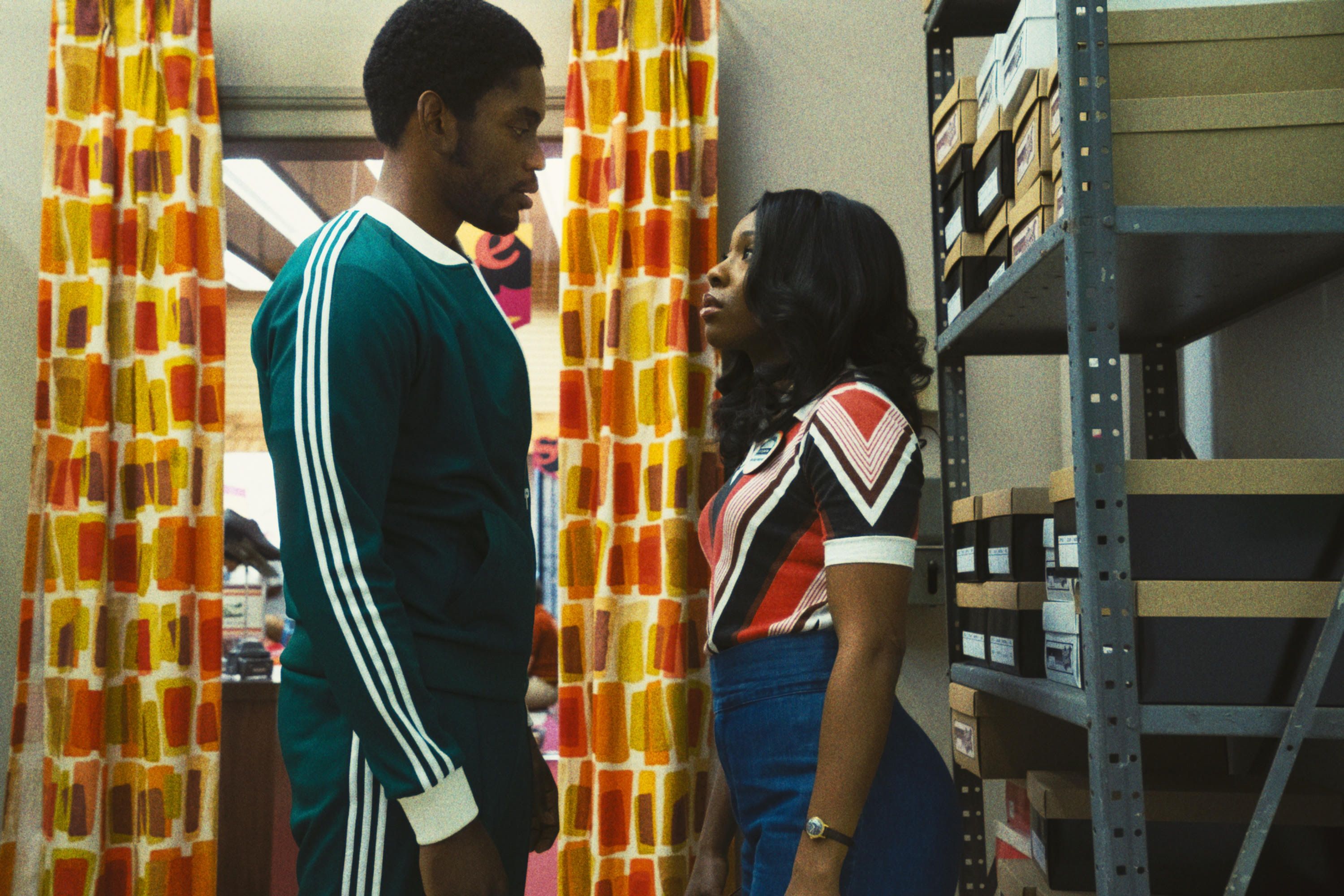From co-creators Max Borenstein and Jim Hecht, and with a pilot directed by executive producer Adam McKay, the 10-episode HBO series Winning Time: The Rise of the Lakers Dynasty follows the intertwining professional and personal lives of the 1980s Los Angeles Lakers. What became one of sports’ most revered and dominant dynasties started with a vision set in motion when Dr. Jerry Buss (John C. Reilly) took over and reinvigorated the franchise, bringing together the flashy characters and the unsung heroes that forever changed the NBA and what the fans grew to expect from basketball.
During this interview with Collider, co-stars Gaby Hoffman (who plays Claire Rothman, the general manager of the Forum, who also happened to be the first and only female manager of any major market sports arena) and Tamera Tomakili (who plays Cookie Kelly, the on-again, off-again girlfriend of Magic Johnson, before later marrying him and becoming half of a powerhouse couple, in her own right) talked about getting to discover who Rothman was and how she fit into this male-dominated world, knowing how to play the game in business, finding the individual pieces of what made Cookie who she is, figuring out that relationship dynamic with Quincy Isaiah, and what helped them get into character on set.
Collider: I have to admit that I don’t know a ton about sports. I’m not a huge sports-watching fan, though I do know more about basketball than other sports because I actually spent a little time playing it in junior high and high school. But I’m from L.A., I do know about the Lakers, I’m aware of the famous players, and I’ve been to The Forum many times. What I knew nothing about was Claire Rothman. Gaby, do you feel that works to your advantage a bit because people won’t be as familiar with her and won’t necessarily know or anticipate her actions?
GABY HOFFMANN: Yes. I didn’t know anything about Claire Rothman either. She’s not well known, as you said, in the public. She’s very well known with the insiders. That’s cool because there’s a lot of information about her, and mostly a lot of impressions of her and of who she was, that have been shared with me as anecdotes. But yes, I’m quite relieved to not be responsible for somebody who’s very well known. I’m not sure I’m up for that task yet. I also just feel like it’s always going to be an imperfect portrayal of somebody who’s a living, breathing heart, mind and soul.
Whether you’re playing Cookie or Magic, or the most well known person in the world, or somebody that the public hasn’t heard of, but is still a real person in the world, we have to accept the fact that we’re going to fall wildly short of being accurate. We can’t know how somebody else thinks and feels and what their dreams and nightmares are, but we can, I hope, do our best to create an experience and a character inspired by somebody that has integrity and that does justice to a human being’s experience, that might have something to do with somebody else’s experience. So, I limited my task to taking this text that was given to me and doing my best with it.
What was it like to learn about how she found herself in this position, in such a male-dominated world, and how she managed to survive this insane world going on around her?
HOFFMANN: Yeah, while raising two kids who might be screaming outside the door. There’s a very small moment in the pilot, where she’s about to go meet Jerry Buss for the first time, and walk into yet another boardroom or conference room of men. Linda, played by the fantastic Molly Gordon, is about to unbutton her shirt and push the drink cart in, and Claire says, “What are you doing? Button up. I’ll go.” But then, puts down her hair. I think it’s a very interesting moment, where Claire is making this calculation of, “All right, I know what I’m about to walk into. There’s only so far I’ll go, but I will go a little bit far to help to create the circumstances where I can then do what I do.” It’s a fucked up, sad situation, that we think about unbuttoning a button or putting down our hair, but that’s the reality. I feel like Claire is like, “I know this game, and I’m gonna play it, so that I can create an arena for myself where I can use my intelligence and my creativity and my gusto and my experience to do what I do.” Those demands and those expectations are shifting for her. She doesn’t yet know that when she walks through this door, Jerry Buss is going to be the person. She knows that it’s Jerry Buss, but she doesn’t know who this man is yet. And he has wildly different expectations than any other man that she has come across before. So, the landscape is shifting for her, in a way that I think is about to get really exciting.
One of the really interesting things about Cookie and getting to see Cookie in this is that I only know about Cookie when she was already Cookie Johnson, and I’m sure a lot of other people feel the same way. Tamera, what stood out to you the most about Cookie Kelly and who she was, before becoming the partner of Magic Johnson?
TOMAKILI: I think what was most excited was getting to hear her voice. I’ve grown up with watching who Cookie is and knowing who Magic Johnson is. I’m also an L.A. native. So, to finally get to research and read about her, and read her words, and to hear her dreams and what she wanted to do, and her family background, and being able to hear the woman behind the man behind basketball, to see where she’s come from, where her roots settled in, and to be able to see whether or not I connect with that, it honestly felt so good. I was like, “Oh, wow.” I feel like I could easily slip in because I relate to so much of how she grew up and the things that she wanted to do, and being the only woman in her family or the only person in her family trying to go into an industry where there are not a lot of Black women going into fashion marketing and distribution. That is what she wanted to go into at Michigan State University. Those are the little pieces of gold where it may not speak directly, in the episodes or in the show, but it adds a little bit to her spine and how she walks, or how she carries her books when she’s studying. It was so much fun to just get to know who she was, outside of Magic.
What was it like to explore that with Quincy Isaiah and to really figure out what that dynamic would be?
TOMAKILI: There was definitely a lot of talking. We were not trying to perfect who these people are because their relationship is their relationship and it’s known for what it is. But we were asking ourselves, “How are we inspired by it? Why do we feel that this happened?” It was a little bit of psychoanalysis and saying, “What is this moment for us? What am I trying to say? What do I want from you? What do you want from me? Where are we clashing in the middle?” And then, it was about letting that go and playing within the moment. The scripts are just so juicy. It allows for us to let go of all that information and just breathe the words and see what comes to life.
Was there a key for both of you, in playing these women? Was there a specific outfit, or a particular aspect of the look, or something about their mannerisms that really pulled it together for you, every day, when you had to step into them again?
HOFFMANN: Yeah, for me, definitely. When I first read the pilot and I didn’t know anything about Claire yet, this voice came through to me, based on the dialogue that was written. That was obviously the starting point in a huge piece. For me, it really wasn’t until I had the hair, which we still haven’t figured that out. It was ever-changing. It was really the clothes and the shoes. Every time I stepped into those shoes, as the final piece, it was like, “Okay, she’s here.”
TOMAKILI: Yeah, same. Knowing a little bit of the backstory of Cookie and what she wanted to go into, in terms of her career, being able to play with clothing and to know what the difference is, of a conservative girl raised as Christian from the Midwest and Black, and what a girl in L.A. would wear. And then, I was able to play with a little bit of personality within that and to find freedom within that. It was so much fun, going in and just trying on stuff. I was like, “Is that what Cookie would wear? I don’t think so. Let’s snazz it up a little bit.”
Winning Time airs on Sunday nights on HBO.



